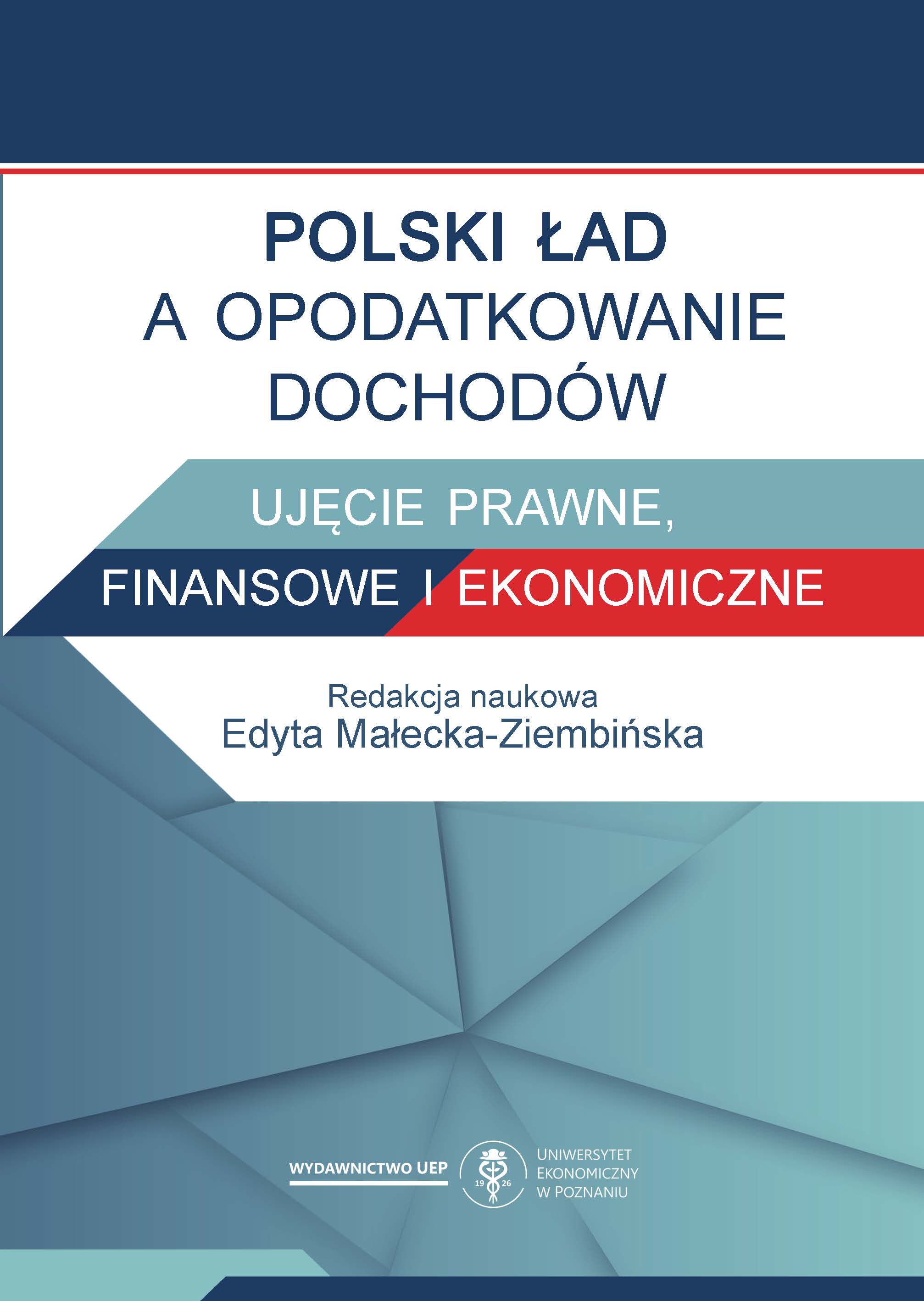Polski Ład z perspektywy wsparcia innowacji
Polish Deal from the perspective of supporting innovation
Author(s): Maciej Cieślukowski
Subject(s): Economy, Business Economy / Management, Micro-Economics, Economic development, Law on Economics, Accounting - Business Administration, ICT Information and Communications Technologies, Business Ethics, Socio-Economic Research
Published by: Wydawnictwo Uniwersytetu Ekonomicznego w Poznaniu
Keywords: Polski Ład;innowacje;ulgi podatkowe;robotyzacja;działalność B+R;MMŚP;
Summary/Abstract: Purpose: To present the construction of tax reliefs for innovations in companies and attempt to generally assess their effectiveness against the background of the degree of use of similar solutions in other countries. Design/methodology/approach: The study is of a literature and empirical character. The research consists of five stages. The first stage describes the degree of innovation in economies in the world. The second stage presents the system of public suport of innovation in OECD countries (direct subsidies and tax reliefs). In the third part the conception of a tax relief and its role in the public policy is explained. The next two parts present constraction of new tax reliefs in income taxes in Poland. Summary includes a general assessment of new tax instruments. Findings: The degree of innovation in economies varies, but the leading countries have been fairly stable for many years. They dominate, among others Western European countries, the United States, South Korea. OECD countries support the development of innovation with subsidies and tax allowances, mainly reliefs for R&D activity. The main beneficiaries of the support are SME. The share of the granted allowances in GDP is growing dynamically. This proves that tax reliefs are an important tool for stimulating innovative activity, mainly in smaller enterprises. The use of the concessions varies across individual countries, and this instrument is successfully used by both better and less developed countries. However, taking into account the size of the granted allowances in GDP, in 2019 selected countries of Western Europe, along with Canada and South Korea,dominated. Unfortunately, Poland fares very poorly compared to the EU countries and even the countries of Central and Eastern Europe in terms of the degree of innovation in the economy, as well as in terms of public support for innovation. The structure and rules of new tax reliefs are rather simple and transparent, and thus should not be a problem for entrepreneurs from a formal point of view. Consequently, the mere fact that the allowances in question were introduced into the tax system must be regarded as appropriate. On the other hand, another issue is the actual degree of interest and use of the reliefs by the entrepreneurs themselves. Reliefs usually consist in deducting the relevant expenses from the income from economic activity, so the real condition is first to achieve a sufficiently high income. In this context, non-returnable subsidies seem to be a more attractive solution than allowances for smaller entrepreneurs. So far, the interest of entrepreneurs in investment tax reliefs in Poland has been quite weak.
Book: Polski Ład a opodatkowanie dochodów. Ujęcie prawne, finansowe i ekonomiczne
- Page Range: 137-148
- Page Count: 12
- Publication Year: 2023
- Language: Polish
- Content File-PDF

